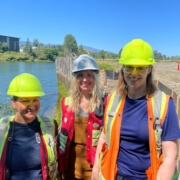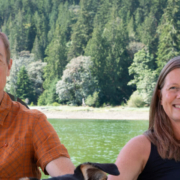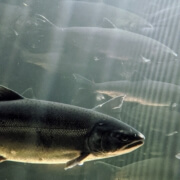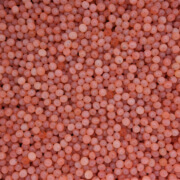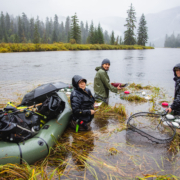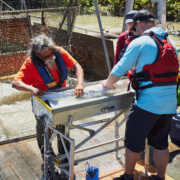Salmon Health: Recent Studies Pack 1-2 Punch Against Open-net Salmon Farms
Salmon Health Program poised for further advances thanks to North Family Foundation gift.
Two recent peer-reviewed papers out of PSF’s Salmon Health Program (successor to the Strategic Salmon Health Initiative) help shed light on the impact disease may have on wild salmon in B.C.
Dr. Andrew Bateman, Manager of the Salmon Health program, led a study indicating that levels of a bacterial pathogen, Tenacibaculum maritimum, were much higher near salmon farms. The research indicates that Fraser sockeye were much more likely to harbour the ulcer-causing pathogen when swimming past Discovery Island salmon farms than at other points along their migratory route. Data from the study do not cover 2020, when many of this year’s returning Fraser River sockeye went to sea.
“This year’s sockeye returns show how complex salmon recovery can be across different populations and watersheds. We’re seeing promising returns to the Skeena, but lower than forecast returns to the Fraser,” adds Dr. Bateman. “Importantly, in our work, one year does not make a trend. We will continue to monitor how recent farm removals from the Discovery Islands — and other factors — may affect these important fish.”
A second study, drawing on the Strategic Salmon Health Initiative’s data, led by UBC’s Dr. Art Bass, assessed dozens of pathogens in thousands of Chinook and coho salmon sampled over a decade along the B.C. coast. The study identifies — for the first time ever — the two pathogens most closely linked to the mortality of free-ranging Pacific salmon in the ocean: Tenacibaculum maritimum and Piscine orthoreovirus (PRV), a virus that causes disease in Pacific and Atlantic salmon worldwide.
“This is the first empirical evidence that PRV is negatively impacting wild Pacific salmon in B.C.,” says Dr. Bass, a postdoctoral researcher at UBC’s Pacific Salmon Ecology Conservation Lab. “These two pathogens are common on salmon farms in B.C., and recent studies provide evidence of transmission from farms to wild salmon.”
“These two peer-reviewed publications help to clarify the disease risks that multiple species of Pacific salmon face,” says Dr. Bateman. “As many wild salmon populations in B.C. have experienced substantial declines over the last three decades, our work suggests that precautionary steps to manage risks under human control — like salmon farms — could play an important role in ensuring a bright future for wild salmon.”
Both peer-reviewed studies were funded by the Pacific Salmon Foundation, Genome BC, and DFO.
CANADA’S NEXT STEPS IN TRANSITIONING AWAY FROM OPEN-NET PEN SALMON FARMING
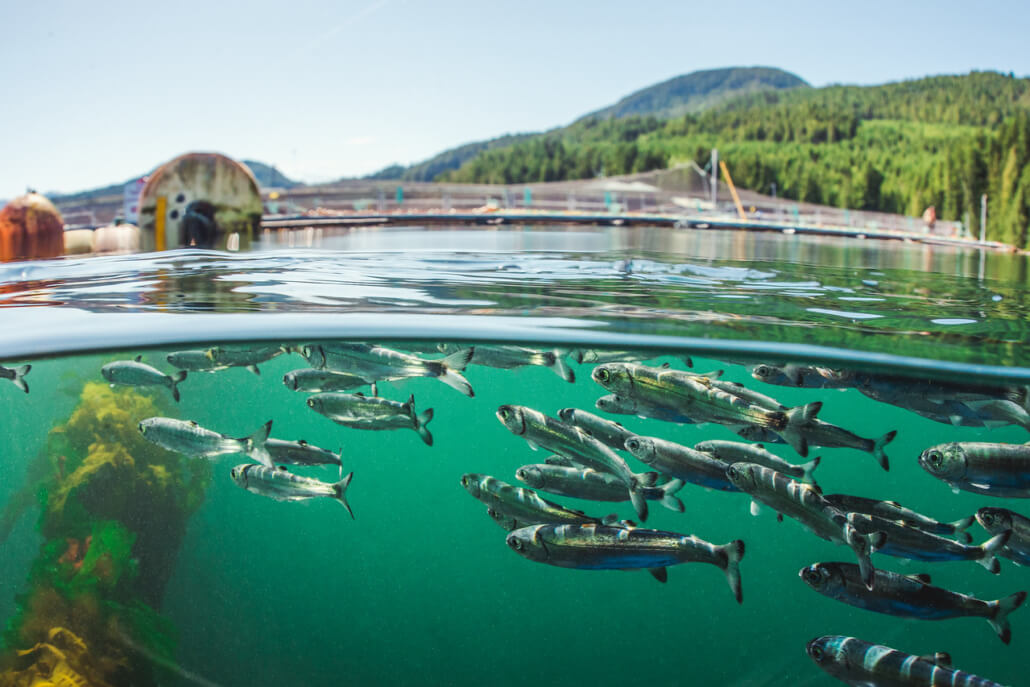
(Tavish Campbell)
As the vast majority of B.C. salmon farm licenses were set to expire in June, the Government of Canada issued an update on their mandate to transition away from open-net pen salmon aquaculture in the province. The update outlines work anticipated to develop the draft framework for transitioning by 2025. The consultation period closes in early 2023.
PSF is actively participating in and contributing to early phases of transition consultations with the Hon. Joyce Murray and DFO.
PSF’s Salmon Health Program received a vital boost thanks to a $450,000 donation from the North Family Foundation led by long-time salmon advocates Rudy and Patricia North. The donation will advance critical research into the cumulative ecological stressors facing salmon at a time when half of B.C.’s wild populations are in decline.
“Through my lifetime, I’ve been a passionate advocate for our marine ecosystems and salmon research and recovery efforts. My hope is that this donation, together with the support of others in our community, will advance the research required to galvanize action to stop the dramatic decline in salmon populations that we have all witnessed in recent decades,” says Rudy North.
The donation will advance:
- Research on Cumulative Environmental Stressors: Researchers use genetic FitChip technology to understand the combined impact of changing environmental conditions on the health of Pacific salmon in relation to long-term survival. Their findings drive action to mitigate specific stressors under human control.
- Independent Research + Monitoring of Aquaculture: Research related to pathogen transfer to help support the federal government’s 2025 commitment to transition away from open-net salmon farming. Your tax-deductible contribution can aid this ongoing work to mitigate risks to B.C.’s wild salmon, as well as development of sciencebased solutions to rebuild salmon populations.
The health of wild Pacific salmon depends on us. Donate today.
(feature photo credit: Amy Romer)

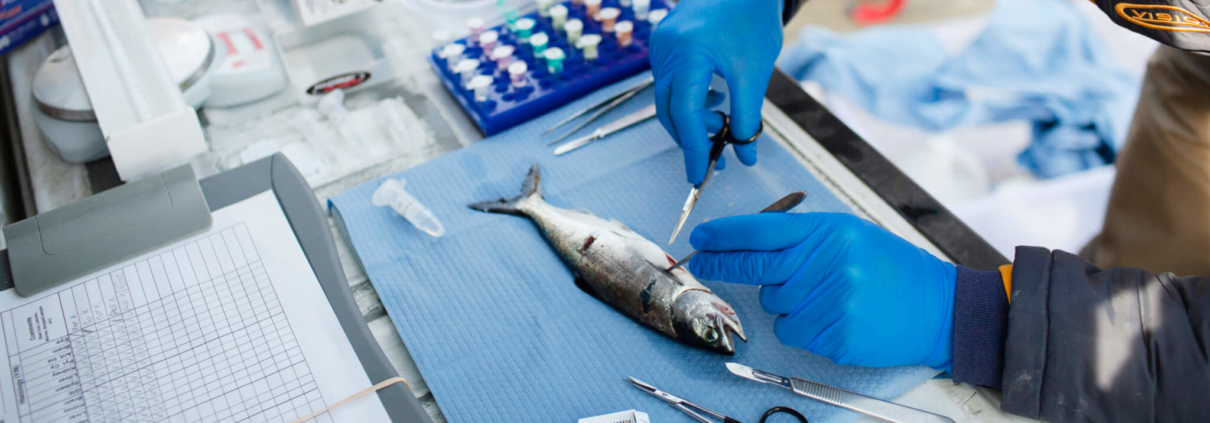 Amy Romer
Amy Romer